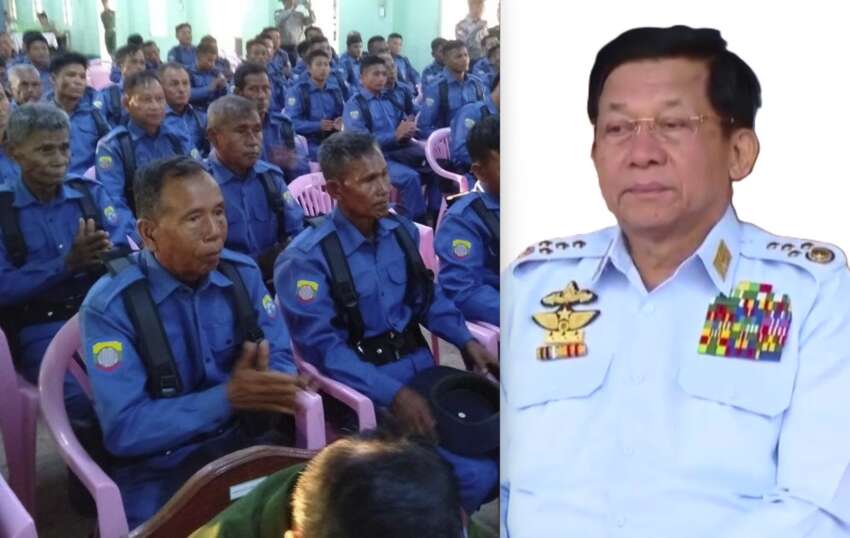
According to military sources in Naypyidaw, military council leader Min Aung Hlaing has issued directives to enhance security measures for the planned December elections, including orders to provide additional weapons to Pyu Saw Htee groups and public security forces. The elections are scheduled to be held in phases across Myanmar during December and January 2026. The security arrangements represent a significant militarization of the electoral process, with armed personnel being positioned at polling stations and around political activities.
The main security responsibilities will be divided between armed Pyu Saw Htee members, who will guard polling stations, and public security force members who will provide security for election candidate activities and movements. Sources confirm that instead of forming a separate election police force as done previously, the military council will increase weapons distribution to existing groups. This represents a departure from past practices and indicates a more militarized approach to election security.
Additionally, newly recruited soldiers, who are being gathered monthly by the military, will be partially utilized for election security purposes. These security arrangements will be commanded by local military township commanders, with the military maintaining direct control over all armed groups. The military sources indicate that weapons will be collected back after the completion of the election period. This centralized command structure ensures the military’s complete control over the security apparatus during the election period.
The military council leader has already enacted laws that include capital punishment for election interference and declared at the military commission meeting on August 12 that the election will be carried out by any means necessary. These intensified security measures have raised concerns among human rights observers about increased oppression of civilians. The military’s approach to election security, involving armed civilian groups under military control, represents a significant militarization of the electoral process and has generated widespread concern about the potential for intimidation and violence during the election period.



